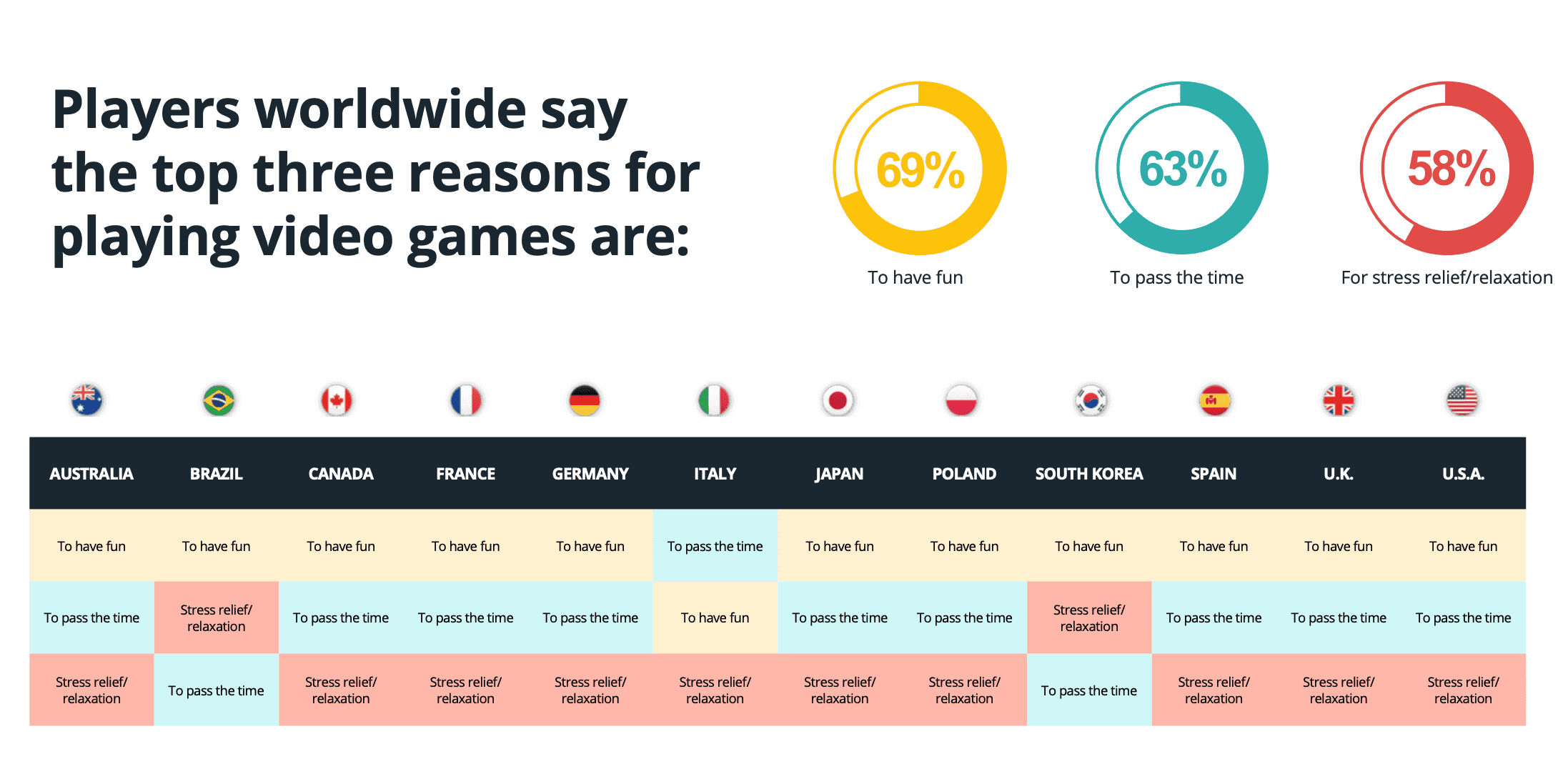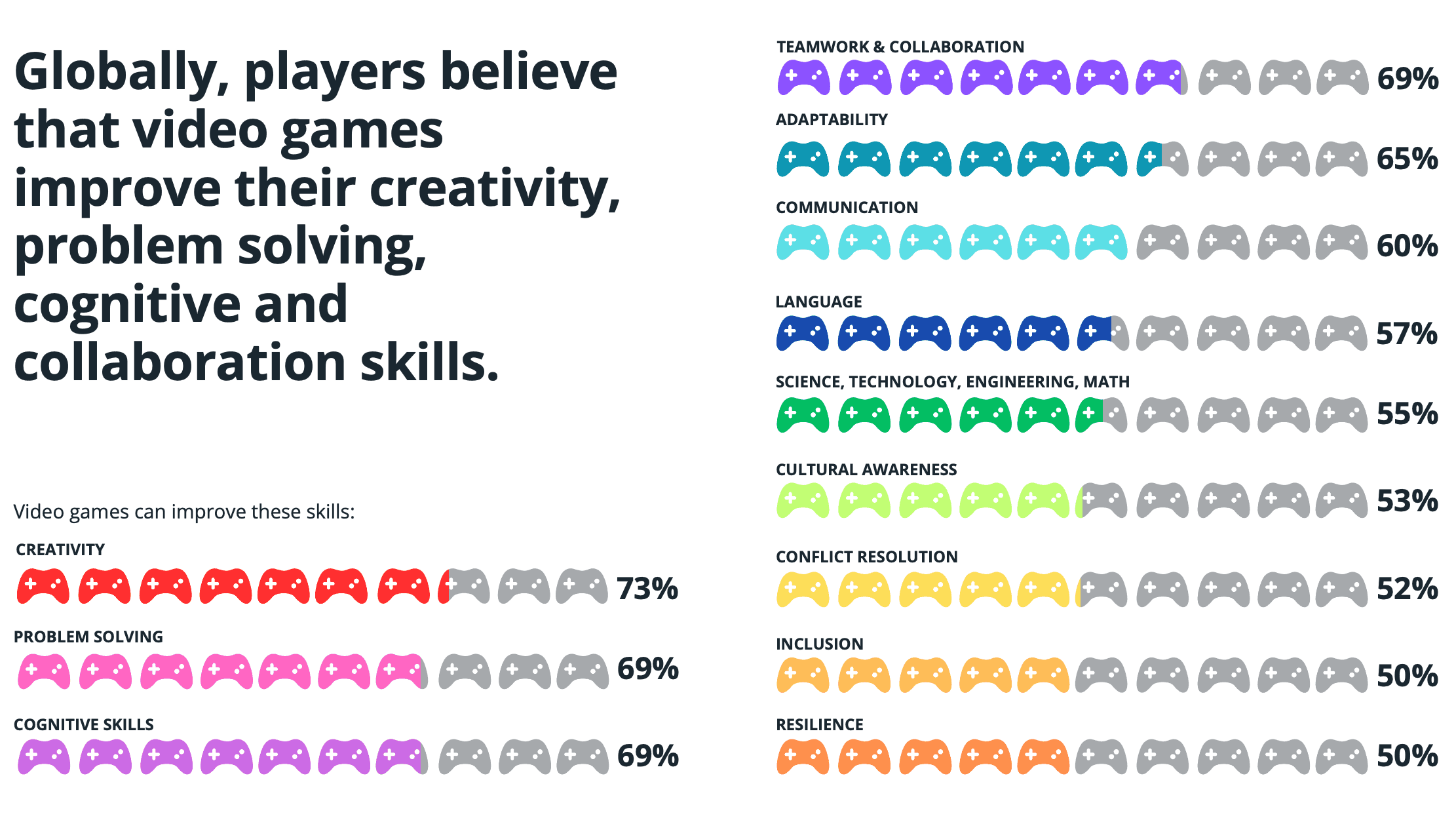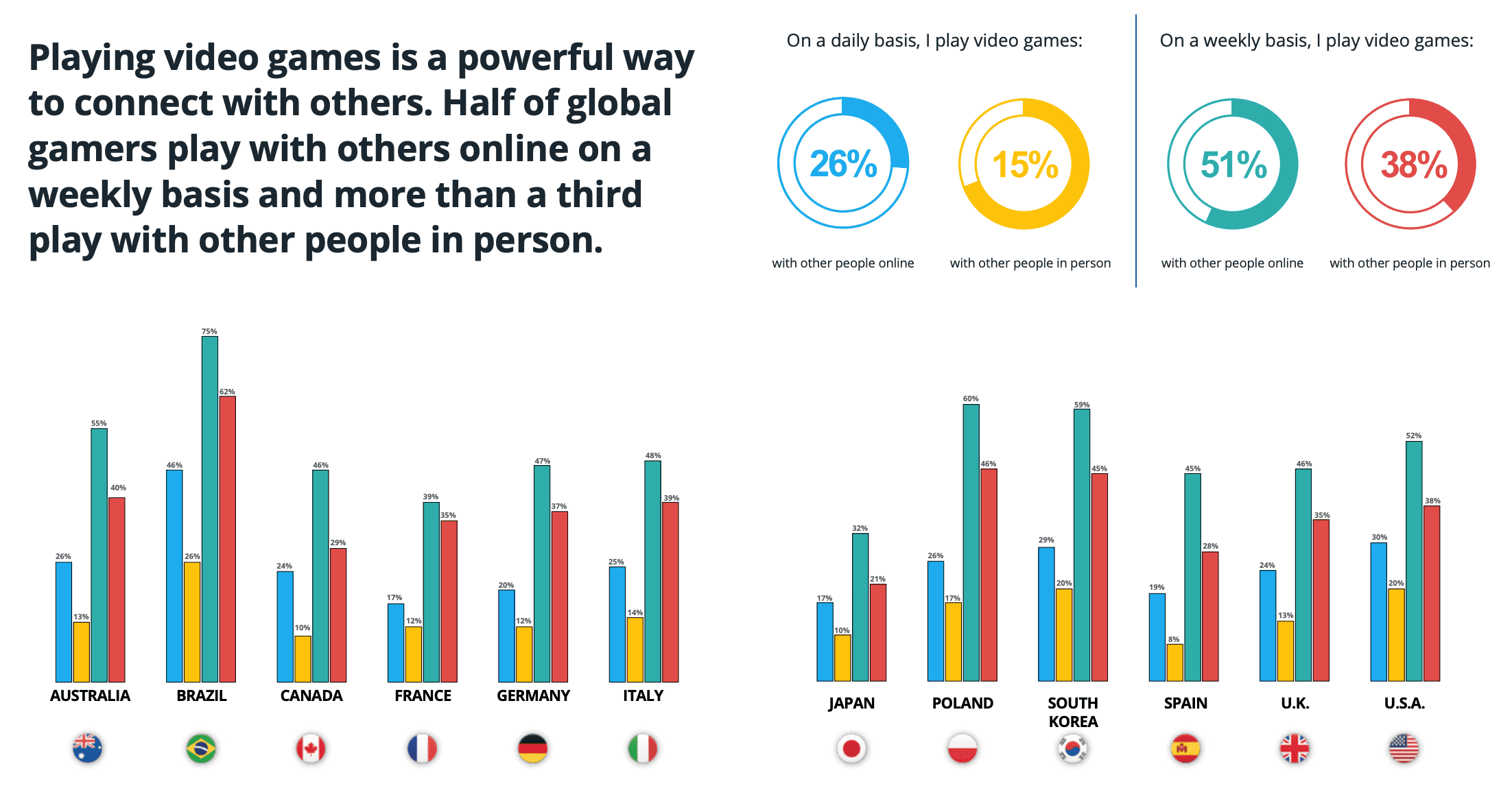In a follow-up to the "Essential Facts About the U.S. Video Game Industry" report by the Entertainment Software Association (ESA), new findings have shed light on the transformative power of video games, revealing that they extend beyond mere entertainment. The ESA conducted a survey, encompassing nearly 13,000 players aged 16 and older across 12 countries, including Australia, Brazil, Canada, France, Germany, Italy, Japan, Poland, South Korea, Spain, the United Kingdom, and the United States. While the survey affirmed that the primary motivation to play video games remains to have fun, it also unveiled a range of benefits that gamers worldwide derive from their gaming experiences.

According to the survey, gamers are turning to video games as a means of finding solace during challenging life circumstances, serving as a vital tool for stress relief, and fostering mental stimulation. This was particularly relevant in the context of the COVID-19 pandemic, where gaming became a way for individuals to stay connected with friends and family. Surprisingly, the latest data indicates that more than half of players participate in online multiplayer games, and over a third enjoy in-person gaming sessions. Strikingly, nearly half of all players have reported forming meaningful relationships, such as friendships, romantic partnerships, or significant others, through video games.

Beyond the players themselves, a large body of academic research, encompassing approximately 15 recent peer-reviewed studies, has highlighted the positive impact of video games on social and emotional well-being. These studies reinforce the findings of the player survey and demonstrate that video games offer unique social and emotional benefits unmatched by other forms of entertainment. The results validate the idea of "the Power of Play."

The ESA's survey uncovered the top reasons for playing video games, with 69% of respondents citing fun as their primary motivation, followed by 63% who play to pass the time, and 58% who use games for stress relief and relaxation. Furthermore, the research indicated that video games contribute to improved mental health, with 71% of players reporting reduced stress, 61% experiencing decreased anxiety, and 58% feeling less isolated or lonely.

The impact of gaming goes even further, with over half of global players asserting that it provides them with a healthy outlet for life's challenges, helps them maintain happiness, and aids them in navigating difficult periods. The data reveals that 64% use games as a healthy coping mechanism, 63% attribute their happiness to gaming, and 52% find support in video games during challenging life phases.

The studies also point to the cognitive benefits of gaming. Video games have long been associated with storytelling and escapism, but recent research indicates that they can enhance cognitive skills and potentially slow the effects of memory loss. Notably, a study published in Nature Human Behavior showed that even a few hours of gameplay per week can improve attention, control, and reading abilities, highlighting the long-term benefits of video games.

Additionally, the report underscores the social aspect of gaming, with half of global gamers participating in online multiplayer sessions on a weekly basis, and over a third enjoying in-person gaming with others. Video games serve as a unique platform that transcends boundaries of age, gender, language, and location, fostering diverse social interactions.

This comprehensive report offers valuable insights into the multifaceted benefits of video games on mental health, social connections, and cognitive development. These findings hold relevance in the context of web3 gaming, where the fusion of blockchain technology and gaming experiences is poised to reshape the industry. The “Power of Play”, as showcased in this report, underscores the potential for web3 gaming to further enhance social connectivity, mental well-being, and cognitive skills, ushering in a new era of immersive and enriching gaming experiences. As web3 gaming continues to evolve, it's crucial to recognize and leverage the transformative potential of video games, not only as a source of entertainment but as a force for positive change in individuals' lives.
